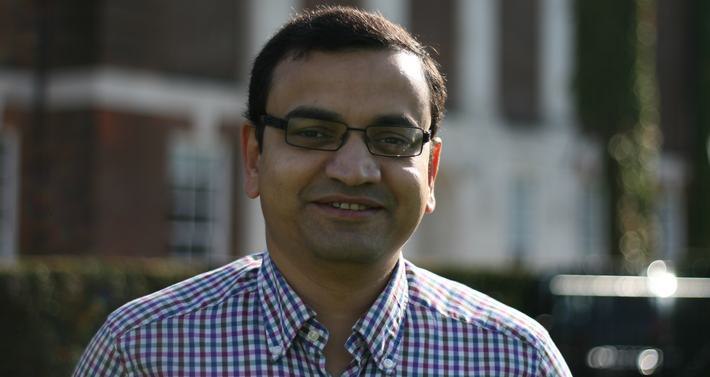Open lecture «Creativity: Through Advanced Brain Mapping and Stimulation» by Professor Joydeep Bhattacharya
The International Centre for Research in Human Development invites TSU undergraduate , MSc and PhD students and lecturers from different academic backgrounds to the open lecture «Creativity: Through Advanced Brain Mapping and Stimulation» by Professor Joydeep Bhattacharya (FRSA, APS Fellow; Head, Brain & Cognition Cluster; Director, EEG Laboratory; Department of Psychology, Goldsmiths, University of London).
Creativity is the driving force behind every progress in human civilization yet it is one of the least understood cognitive constructs. As it is complex and multifaceted, we need to have multi-measure neuroscientific approach in order to reveal the neuronal mechanisms underlying various stages of creative problem solving. Using a combination of neuroimaging techniques like ultra high field fMRI, high density EEG, the neuronal trajectory of creative cognition will be presented.
Read more about the lecture:
«Creativity: Through Advanced Brain Mapping and Stimulation»
Prof. Joydeep Bhattacharya FRSA, APS Fellow
Head, Brain & Cognition Cluster
Director, EEG Laboratory
Department of Psychology
Goldsmiths, University of London

Abstract: Creativity is the drivin force behind every progress in human civilization yet it is one of the least understood cognitive constructs. As it is complex and multifaceted, we need to have multi-measure neuroscientific approach in order to reveal the neuronal mechanisms underlying various stages of creative problem solving. Using a combination of neuroimaging techniques like ultra high field fMRI, high density EEG, I presented the neuronal trajectory of creative cognition. Specifically I will show that the insightful Aha! Moment sare linked to a sudden release of the neurotransmitter dopamine, and further there are distinct neural precursors to such Aha! moments. I will also discuss a computational model explaining the emergence of Aha! moments. Next I present some recent findings showing how brain stimulation can specifically be nefitourcreative thinking by over coming persistent mental biases. Finally I will also present some latest data when brain stimulation can surprisingly inhibit some facilitatory effects of creativity training.
Date: Tuesday, 20th of December 2016, 16.35 – 18.10
Venue: Tomsk State University, International Centre for Research in Human Development, TSU 4th Building (8, Moskovsky Trakt), Room 022.
Contact information: e-mail: icrhd@mail.ru; phone +7 (3822) 786 050

